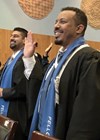With sincere thanks to Andrew King, Ophthalmic Optician and owner of Andrew King Opticians near Glasgow, for his extensive research into Duke-Elder’s life.'
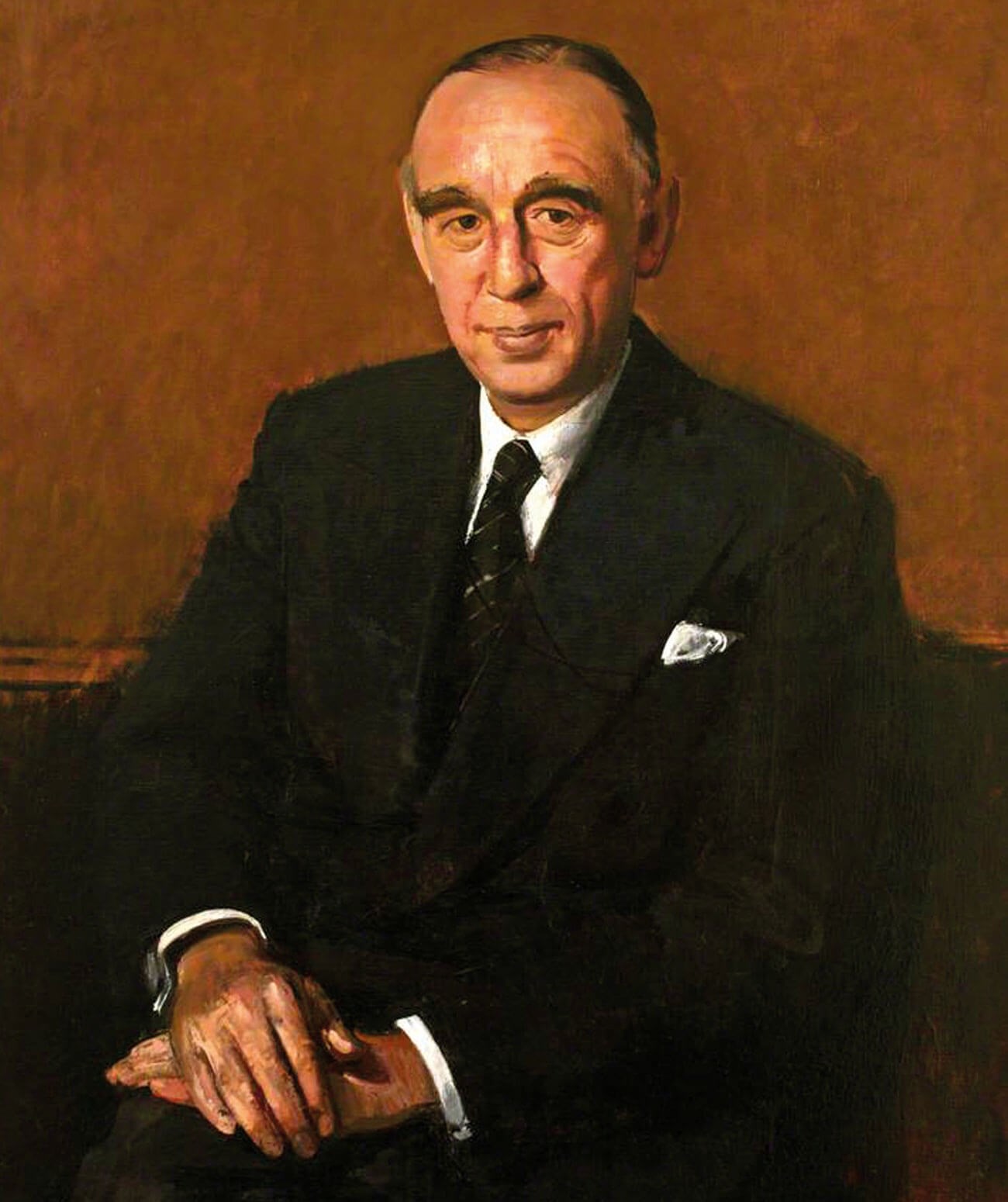
Sir William Stewart Duke-Elder. Photo credit:
Edward Irvine Halliday, Institute of Ophthalmology.
In the world of ophthalmology, few names resonate with the same depth and reverence as Sir William Stewart Duke-Elder. Not only was he the personal ophthalmologist to two British Prime Ministers and surgeon oculist to British royalty, he was also the first ophthalmologist to be Knighted.
His journey from a small village north of Dundee to establishing the Institute of Ophthalmology in London illustrates his incredible impact on the field of eyecare. And now, a century after his graduation from St Andrews, we acknowledge his pivotal role in fostering the beginnings of modern ophthalmology with his legacy being preserved in the School of Medicine’s Arclight Project, a ground-breaking social enterprise aimed at combating global blindness.
The St Andrews years
As the middle son of a Free Church minister, Duke-Elder’s academic pursuits found their fertile ground at St Andrews. After leaving Morgan Academy in Dundee as Dux, he secured a scholarship in 1915 to study at the University of St Andrews. This was to be the beginning of a lasting relationship with the university, going on to earn a BSc in Physiology and MA (Hons), an MD and then a DSc for separate dissertations on intraocular pressure and in 1923, graduating with a medical degree. During his time in medical school, he became president of Bute Medical Society and in 1950 was awarded a Doctor of Laws (LLD) as part of St Salvator’s 500th anniversary celebrations.
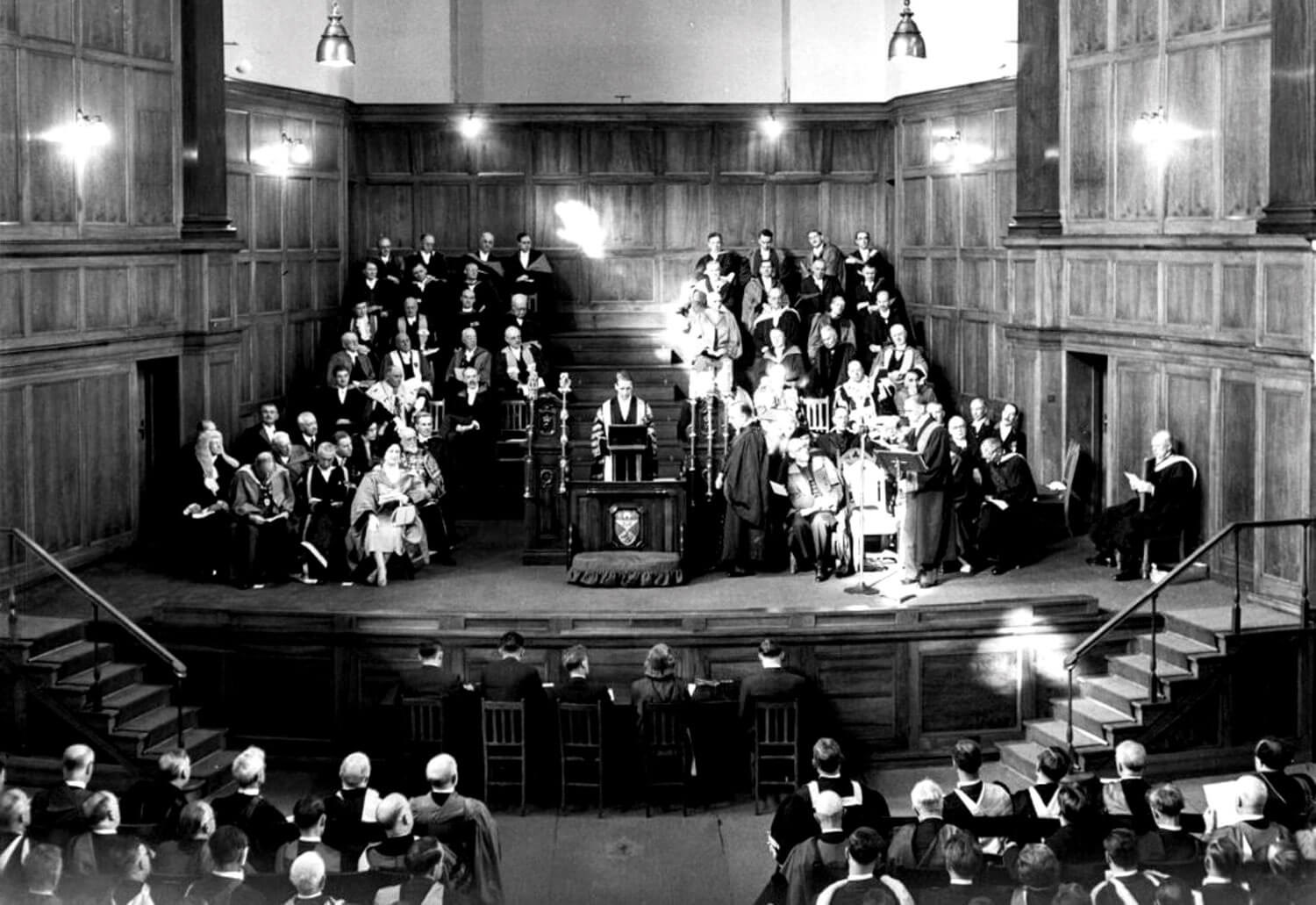
Sir William Stewart Duke-Elder at his LLD graduation in the Younger Hall, attended by the Queen Consort.
Photo credit: George Cowie / Image courtesy of University of St Andrews Libraries and Museums.
As an undergraduate, his potential soon came to the attention of Sir John Parsons FRS (1863–1957), a leading ophthalmic surgeon at UCH, London, and Moorfields. Sir John already had a global reputation for revolutionary research into ocular physiology and extended to Duke-Elder the invitation to join him.
Success followed and he became a permanent consultant at Moorfields in 1928, only five years after graduating. His prodigious writing and research activities quickly made him a renowned figure in the profession. His eminent career progressed through writing and teaching the next generation, making a lasting contribution to the field with the ground-breaking seven-volume, Textbook of Ophthalmology.
Supporting sight and sound: The Arclight Project
While serving in the Royal Army Medical Corps during World War 2, Duke-Elder was instrumental in ensuring that all personnel received eye examinations and spectacles where needed. This ethos of accessible eyecare, so deeply embedded in Duke-Elder’s philosophy, now finds resonance in today’s pioneering initiative at St Andrews called The Arclight Project. The project’s goal of widening access to eyecare continues Duke-Elder’s legacy as the team develops frugal yet highly portable eye and ear diagnostic and training packages with the solar powered Arclight device at its heart. The connections are deeper still with Duke-Elder’s doctoral thesis at St Andrews, focusing on intraocular fluid equilibrium – the Arclight Project has recently developed a tonometer for glaucoma screening in resource-poor settings called the Newton. This is about to enter initial evaluation in Uganda, funded by a grant from Glaucoma UK, reflecting the intertwining of Duke-Elder’s foundational research with modern-day innovations.
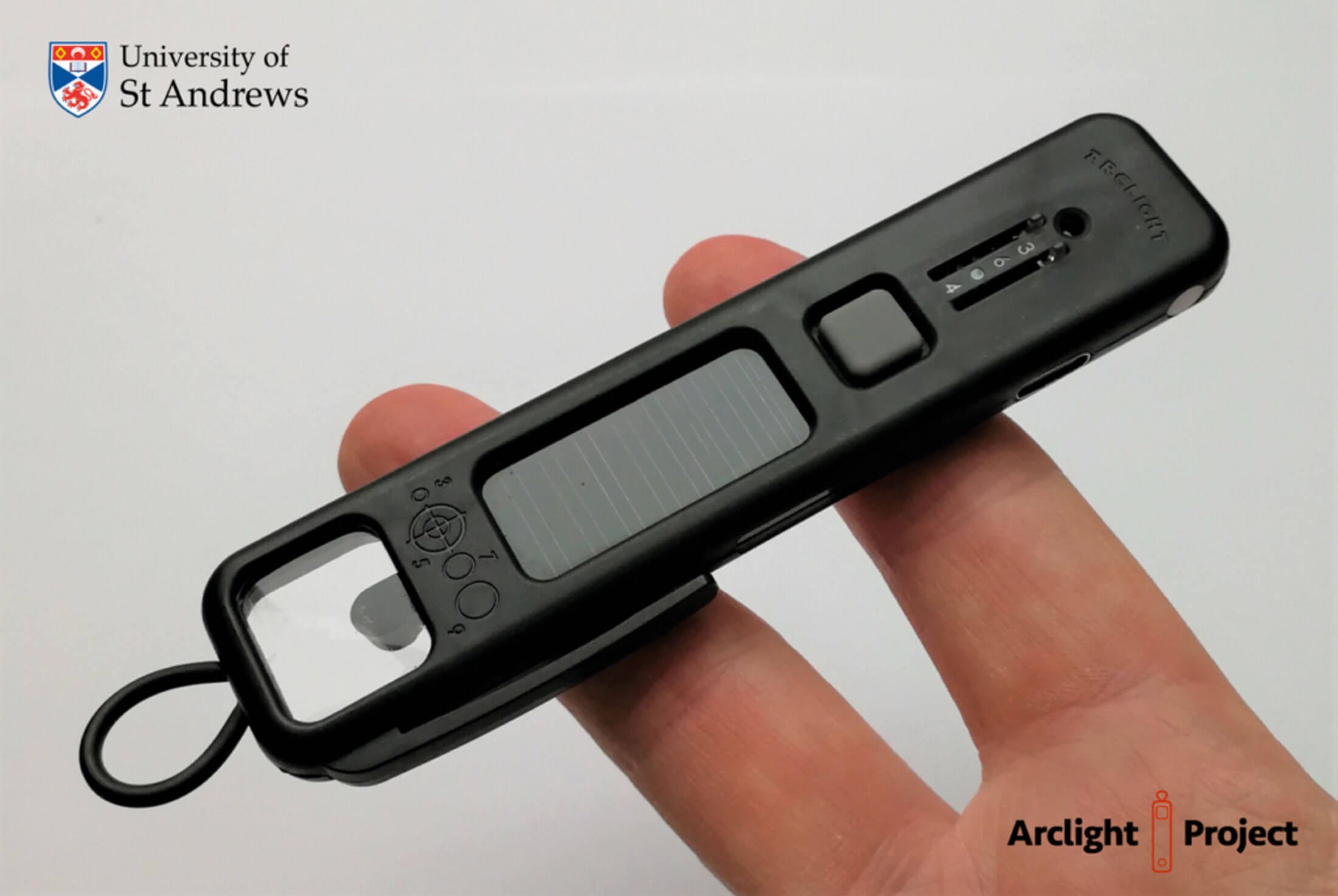
The Arclight device.
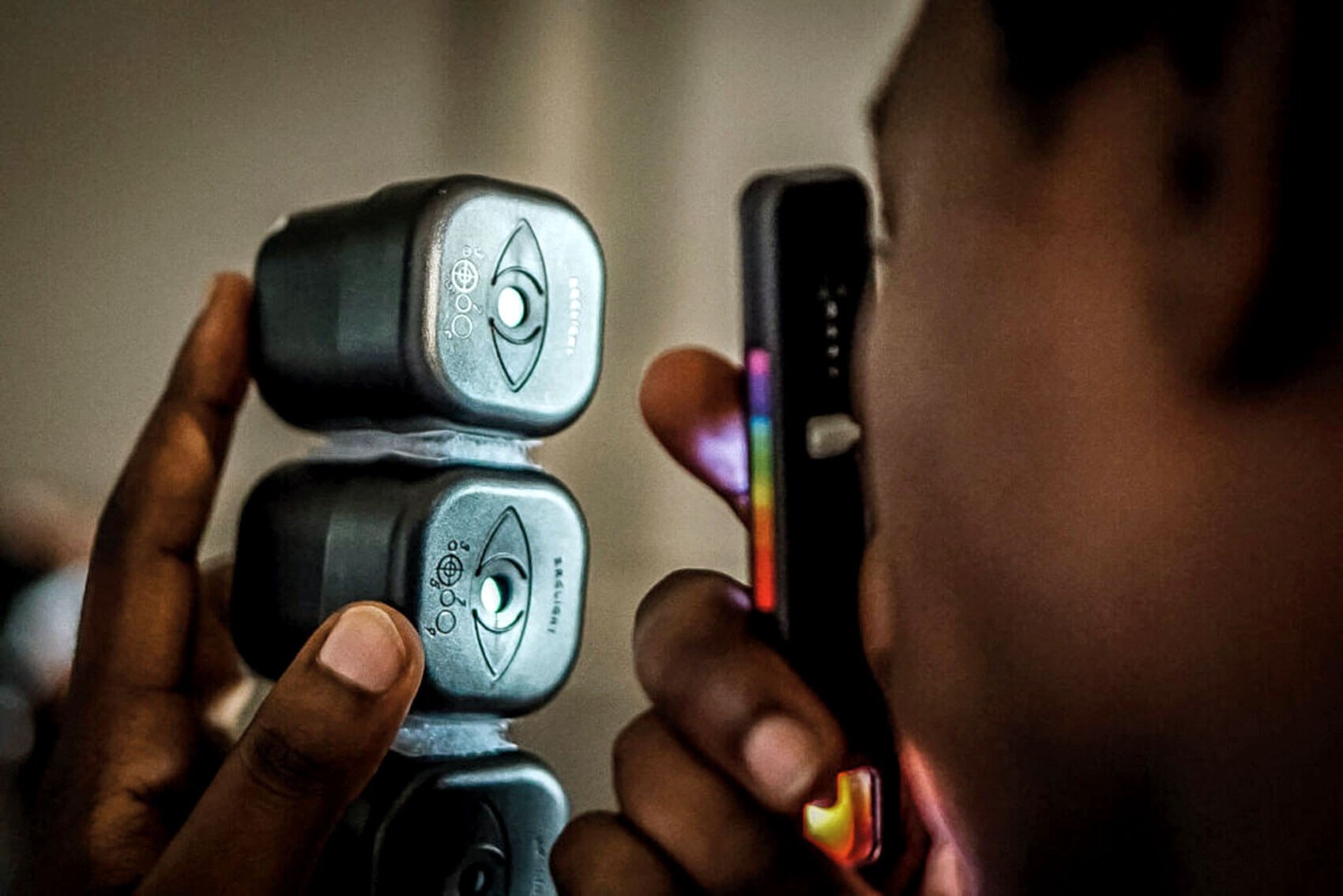
Simulation training with the Arclight in Rwanda.
Spreading the word
Since the initial Arclight prototype, created 10 years ago by William J Williams, the growing Arclight Project social enterprise has become established in the School of Medicine since 2019. This enables those working in low- to middle-income countries (LMICs) to equip, train and empower health workers of all grades to confidently diagnose and manage eye and ear disease. The relevance of the Arclight Project and its focus on training and equipping at the level of the community cannot be overstated and is especially relevant now as the World Health Organization (WHO) rolls out Primary Eye Care as well as newborn eye screening for the first time in LMICs.
"Duke-Elder, legendary even in his student days, presents in his professional life such an array of accomplishment, that fantasy herself is dismayed"
When better to celebrate the milestones reached than 100 years on from the graduation of one of ophthalmology’s most respected figures. If you would like to support the Arclight Project team to expand their work throughout the poorer regions of the world and continue the university’s pioneering contribution to transforming lives through ophthalmology, please consider making a donation.
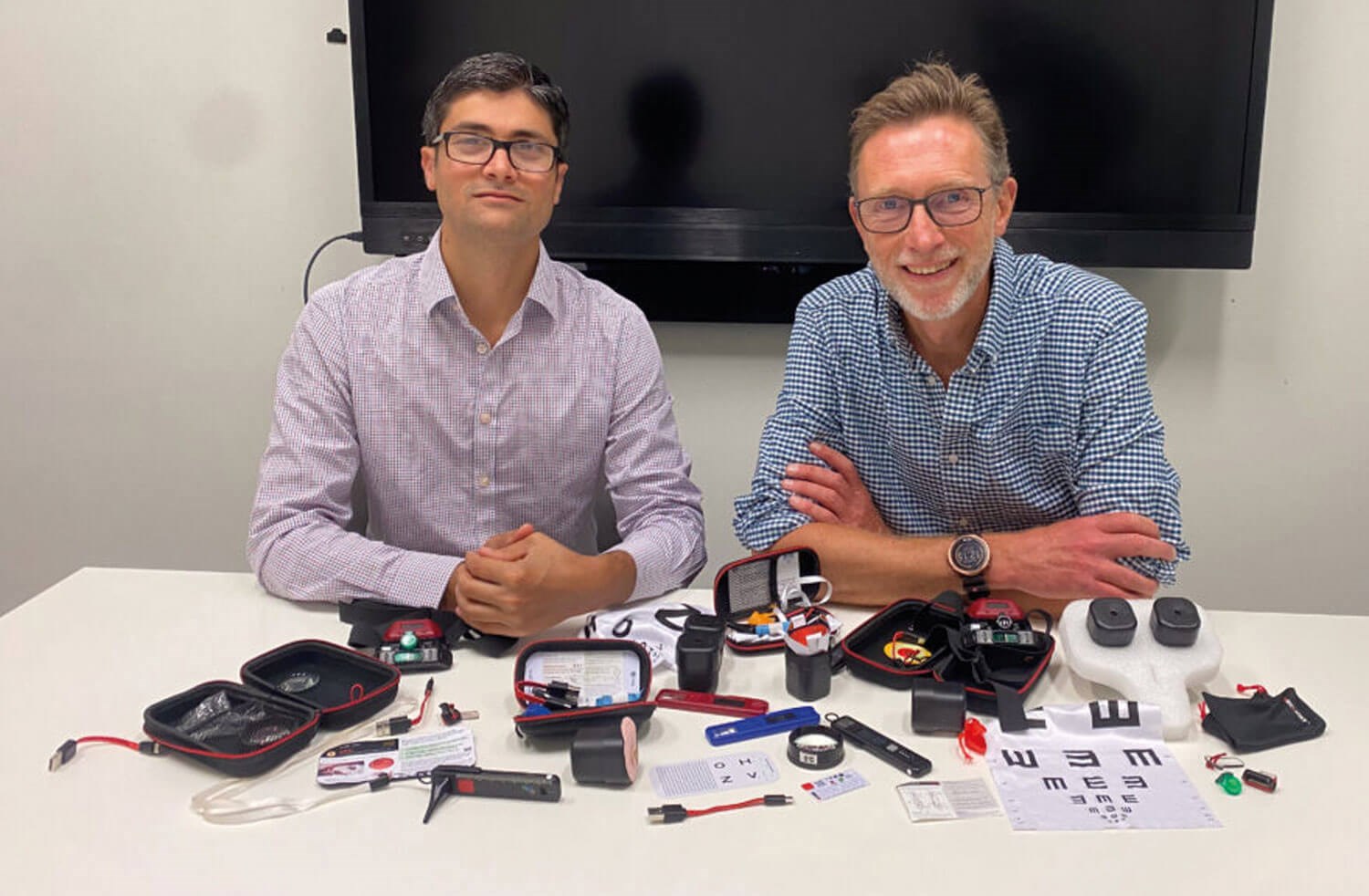
Obaid Kousha and Andrew Blaikie of the School of Medicine
with the Arclight Package. Photo credit: Jithu Thomas.
For more information, visit: https://medicine.st-andrews.ac.uk/arclight
COMMENTS ARE WELCOME





